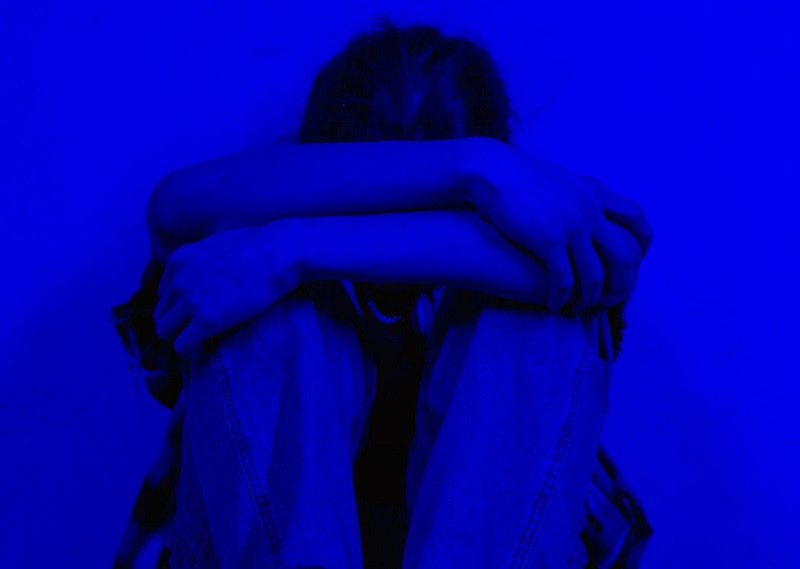At some point in their lives, everyone goes through a phase in which they see that not many things make sense, even their own existence.
Existential crises are part of the human condition arising from the fact that from time to time we ask ourselves about our value and that of the things that surround us.
Existential crises bring with them negative emotions, including existential anxiety which, depending on how you look at it, can be seen as a synonym for crises.
It is inevitable and even healthy to go through a period of this type of anxiety, as it helps us establish the path we want to take in our lives and see what things are of value. However, it also has the negative point that if not addressed properly, it can lead to some mental health problems.
Let’s discover below what existential anxiety is and what are its characteristics.
What is existential anxiety?
Existential anxiety is that discomfort that arises when we go through an existential crisis, that is, a moment in our lives in which we question whether our existence has meaning, purpose or value. The question of the meaning and purpose of human existence has been the greatest point of debate in the philosophical tradition of existentialism.
In existentialist philosophy, the term “existential crisis” refers specifically to the individual crisis when a person realizes that they must always define their own lives through the decisions he or she makes.
The existential crisis occurs when one recognizes that even the decision to refrain from acting or withhold assent to a particular choice is, in itself, a choice. Human beings are condemned to be free.
Anxiety and existential crises originate when we experience a change of stage or have experienced a very significant event for our lives, both positive and negative. People enter periods of existential crisis after having suffered a psychological trauma, getting married, divorcing, losing a loved one, having a new partner, using psychoactive drugs, having a child or reaching a culturally important age such as 18, 40 or 65 years. among many other causes.
It is difficult to clearly define what is the cause and what is the consequence, because in reality it can be seen as the classic of what came before: the chicken or the egg. Is it existential anxiety that leads us to an existential crisis or does it happen the other way around? No matter how you want to look at it, the point is that existential anxiety leads us to a period of reflection and also of internal conflict, which can serve as a starting point for making new decisions and changing some perspectives.
What are the characteristics of existential anxiety?
Søren Kierkegaard (1813-1855), Danish philosopher considered the father of existentialism, believed that existential anxiety was not only common, but also necessary. From his perspective, you could say that existential anxiety is healthy, It needs to catch us from time to time because it motivates us to rethink certain aspects of our lives.
Becoming aware that we are mortal makes us seek and find new vital purposes. The existential crisis serves so that, after having lost the meaning of our lives, we look for it ourselves.
However, if we take a psychological perspective, the experience of existential anxiety should not be seen as something positive. In theory, what helps us find the meaning of life sounds easy, but in practice this is rather complicated. In fact, when we are in a state of deep anxiety, of any kind, it is very difficult to think clearly and make decisions. What’s more, there is a greater risk of making the wrong decisions.

Extreme anxiety makes us lose our way. When we are anxious, all kinds of irrational, repetitive and unhealthy thoughts come to our mind that are accompanied by physical symptoms such as muscle pain, tachycardia, headaches, sleep problems and panic attacks.
Although philosophy’s view of existential crisis and anxiety is accurate for those cases in which the individual derives benefit from it, in the case of clinical psychology this is conceived as a potential problem, something that if not adequately addressed It can cause mental health problems.
For this reason, below we are going to highlight some characteristics of existential anxiety, relating it to the possible problems that can occur in the individual who goes through a crisis of this type.
1. Feeling of uselessness
One of the characteristics of existential anxiety is the great physical and psychological exhaustion that it brings. Whoever goes through an existential crisis feels that he is wasting his time and energy, investing them in things that are not worth it.
The individual asks questions like “what’s the point of suffering from so much work?” “Where is all this effort I have invested taking me?” “Will everything I’m doing help me?” He is at the limit of his strength.
2. Negative emotions
Bad emotions attract other feelings of the same type. So that, It is common that when you feel existential anxiety you feel trapped by constant anguish. By questioning everything he has done and surrounds him, the person distrusts the present and has a pessimistic vision of the future.
The perception of the world is that it is like a house of cards that sooner or later is going to collapse, that nothing is certain and that it is worthless. Things and people have no meaning, nor do their actions. Everything is unstable and fleeting.
3. Feeling of unreality
A very common phenomenon while suffering from existential anxiety is the feeling of unreality or depersonalization.
It gives us the feeling that we live separated from reality, that the world in which we live is a theatrical performance and that we, instead of being on stage as protagonists, are in the seats as the audience.
Reality has become part of a set and we see that what happens in it is hardly authentic.
4. Loss of vital meanings
Existential crisis is associated with a loss of the sense of authenticity in which the sense of self is lost. Nothing is what was thought at the beginning. The perception that society can fail is reinforced.
The loss of vital meanings is felt with anger, disappointment and rage. The person feels very bad, even with themselves for feeling that they have placed their trust in those social structures that now fail them. He feels that he is a naive person for having believed at some point in his life that everything is wonderful and that nothing can go wrong.
There are few things more dangerous for mental health than perceiving that life has lost meaning. Thinking that nothing is as one thought and that society has failed us can plunge us into a state of great anxiety that can later lead to a depressive disorder.
- Related article: “The 10 types of values: principles that govern our lives”
5. Doubt absolutely everything
Our mind can be our worst enemy when we find ourselves mired in existential anxiety. The mind becomes that factory of all kinds of disabling thoughts. that make us question a good part of the things that happen to us and surround us. We see the world with a critical gaze, which distorts and questions everything.
This is why, being in an existential crisis, we question even our own beliefs, faith and many other things, something that Kierkegaard himself already advanced. They even question whether the people who make up our closest circle love and value us.
6. Isolation
A very important aspect of existential anxiety is its propensity to make us feel alone. The feeling of isolation associated with existential anxiety It usually occurs because the person feels that no one else understands what they are going through.
And he is right. Nobody knows what you are going through because it is an existential crisis, something very personal, and no one but yourself can understand yourself perfectly, something that not even we ourselves achieve on more than one occasion.
The feeling of loneliness and isolation are common and act as an impediment to interacting with other people. It’s a circle that feeds itself : we feel alone, we don’t want to interact with anyone else and we feel even more alone.
- Related article: “Unwanted loneliness: what it is and how we can combat it”
7. Panic attacks
Panic attacks are common symptoms in anxiety episodes. The continued feeling that nothing in this life makes sense, that everything is beyond our control, causes us to sooner or later begin to experience panic attacks.
The anguish accumulates as the days and weeks go by, an emotion that ends up manifesting itself in invalid and sudden episodes of discomfort and nervousness that tend to further reinforce the feeling of fear and insecurity.
A final thought
Although existential anxiety should not always be seen as a symptom that a disorder is occurring, its progress should be monitored. As far as possible, it is healthy to consider what our vital meaning is and do something to find it because, otherwise, we can fall into a deep depression and see ourselves as individuals who have little to offer humanity.
It is essential that we seek support when we find ourselves mired in one of these existential crises. , even if they are normal for the age or situation we are in. Coping skills can make us come out of the situation stronger, gaining new resources to face the new stage more effectively.









